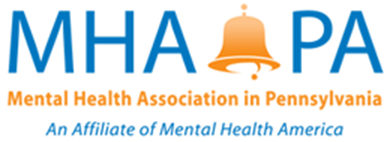
October Policy Update
The following is an update regarding national legislation updates and policy as it relates to mental health. With the voter registration deadline quickly approaching in Pennsylvania (October 19!) these policy updates serves as a reminder that our vote matters. Elected officials from the local to the federal level policies that can affect us all. Register to vote today!
Mental Health Bills Pass the House and Advance to the Senate
In the past weeks, the House of Representatives passed several mental health bills under suspension of the rules (meaning they can be brought up quickly and approved). MHA recently co-signed a letter from the Mental Health Liaison Group, urging the Senate to quickly pass these bills. Given the timing, it is unlikely that any further action will take place after the election, but affiliates can review this letter to understand which bills have been moved forward.
Opportunity to Comment on Telehealth
CMS issued a lengthy Physician Payment Rule last month seeking comment on several provisions, including several, which are very important to telehealth. Comments are due Monday, October 5. Attached to this email are MHA’s comments, which are heavily reliant on comments prepared by the Mental Health Liaison Group. Please feel free to cut and paste anything useful in these comments if affiliates want to comment. The mental health community is mainly focused on requesting authority for audio-only mental health services. The agency did not authorize audio- only in the rule and asked for comment on this topic. Affiliates were encouraged to file comments and include any information about how audio-only services and telehealth, in general, has been helpful to our constituents.
Executive Order
The White House issued an executive order on employee training on racial and gender issues, leading to many questions about what is permitted for federal contractors and grantees. MHA’s national office and many of its affiliates receive federal grant funding either directly or as subcontractors. We oppose the order and MHA President and CEO Paul Gionfriddo’s public statements on racism indicate our values and beliefs on these important issues. We are aware of several entities that are likely to legally challenge the order as violating the Administrative Procedures Act and the First Amendment. Here is a recently published analysis of the order, its application, and its implications for training programs that may be helpful. We will keep you updated as to the legal validity of the order.
COVID-19 4th Relief Package
Negotiations continue between the House leadership and the White House on a relief package. Earlier this month, the House introduced (but has not yet voted on) an updated HEROES bill. A description of the bill and links to a summary and text can be found here. Importantly for the mental health community, this new bill includes $$8.5 billion to SAMHSA to provide increased mental health and substance abuse services and support, including:
- $3.5 billion for the Substance Abuse and Prevention Treatment Block Grant;
- $4 billion for the Mental Health Services Block Grant (not less than half of the funds must be allocated directly to facilities defined in section 19 1913(c) of the PHS Act);
- $600 million for Certified Community Behavioral Health Clinics;
- $50 million for suicide prevention programs;
- $100 million for Project AWARE to support school-based mental health for children
- $10 million for the National Child Traumatic Stress Network;
- $240 million for emergency grants to States; and
- $150 million to tribes, tribal organizations, urban Indian health organizations, or health service providers to tribes across a variety of programs.
The bill also includes a 14% total increase to the Federal Matching Assistance Percentage for Medicaid, $436 B for states and localities to address revenue shortfalls, and a new round of Paycheck Protection Program funding for non-profits and small businesses, and numerous other provisions. As of this writing, it is unclear whether the House will vote on this measure or wait to see if they can negotiate a final bill with the White House and bring that legislation for a vote. Events are unfolding rapidly, so this information may be updated shortly. Even if the bill does not get enacted, it is positive that MHA’s consistent message that significant mental health dollars are needed has been heard. We are grateful to all the affiliates who joined us in meetings with Congressional offices to argue for these resources.
The President also signed the continuing resolution this week so the government remains funded through December 11, 2020.







